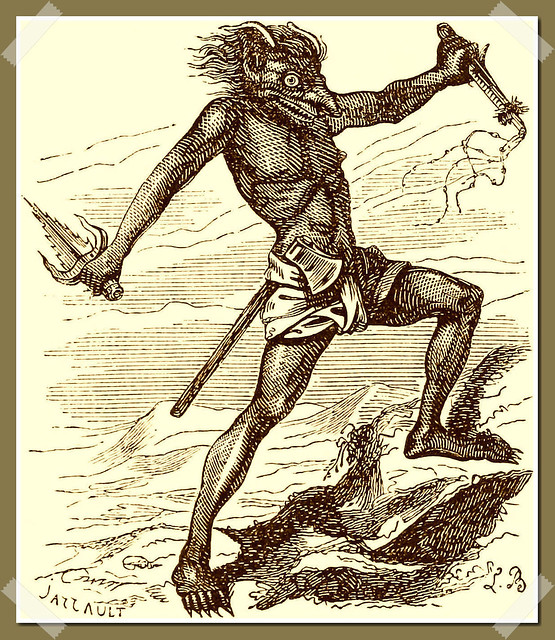
When is a blood feud sated? At what point is revenge sufficient? Alastor might say “never.” Alastor may be an individual spirit of vengeance or a class of avenging spirits. The term is sometimes used as an epithet for deities like Zeus and Nemesis in their roles as purveyors of justice. What began as justice spirits evolved into feared spirits of questionable intent associated with vendettas and blood feuds.
Alastor’s revenge isn’t just any revenge: it’s bloody, scary, out-of-control, raging revenge. Euripides’ Cassandra threatens Agamemnon by claiming the powers of an alastor (and as she is a shaman, this may be no idle threat).
Alastor is identified with the concept of children paying for the sins of their fathers, a common theme in Greek mythology. Al though theoretically Alastor is a justice spirit, an alastor is also a feared possessing spirit that relentlessly drives its host to seek vengeance. The spirit may enjoy the bloodshed. (The clue is that the host displays obsessions and feels compelled to do what he or she does not wish to do or knows is wrong.) Psychic disharmony caused by the trauma of the original crime renders the individual vulnerable to the alastor. Thus when Orestes is advised by an oracle to avenge his father by murdering his mother, he initially questions whether this advice really came from Apollo or from an evil-intentioned alastor. By the Middle Ages, Alastor was identified as a Demon or a class of Demons.
Alastor- Avenger –
ORIGIN:
Greek
SEE ALSO:
SOURCE:
Encyclopedia of Spirits: The Ultimate Guide to the Magic of Fairies, Genies, Demons, Ghosts, Gods & Goddesses– Written by :Judika Illes
